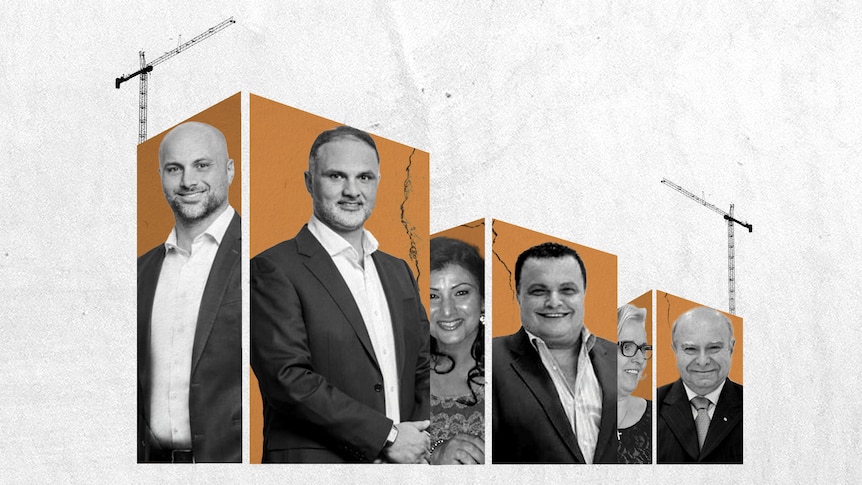Dyldam was once a towering force. Its apartments still line the streets and light up the skyline of western Sydney.
But for more than a decade, the Dyldam group has left a trail of misery behind it that includes bankrupt businesses, unpaid taxes, tradies denied payment for work they’ve done, suppliers ripped off, and anguished apartment buyers stuck with defective buildings — one built so badly it posed a hazard to human life.
Time and again, a litany of potential law-breaking has been identified by those brought in to clean up the mess left by busted Dyldam companies.
Yet, for years the corporate regulator, the Australian Securities and Investments Commission (ASIC), took no action.
Only now are events finally catching up with a key figure in this property development empire.
Courts in Brisbane and Sydney are hearing charges levelled against the director of Dyldam Developments, Sam Fayad, for criminal breaches of company law.
The question is, why did it take so long?
University of Sydney law school professor Jason Harris, an expert on insolvency, said it was symptomatic of a wider problem: ASIC’s unwillingness, or inability, to pursue more than a tiny fraction of the many thousands of reports of misconduct it receives each year.
“The sad fact about this is that the bad guys know full well that this is how the system works. So, if you’re a director and you want to break the law … you’re highly unlikely to be prosecuted,” he said.
“ASIC has to be far more effective in being seen to enforce the law because, at the moment, they’re really the watchdog without teeth.”
Even now, the Dyldam empire lives on – allowed to trade, and develop shoddy buildings under a new name.
–‐-‐‐----- The article then continues to go into further detail of the exploits of Dyldam group and how ASIC did nothing about it for years even though they received multiple complaints lodged against them.


